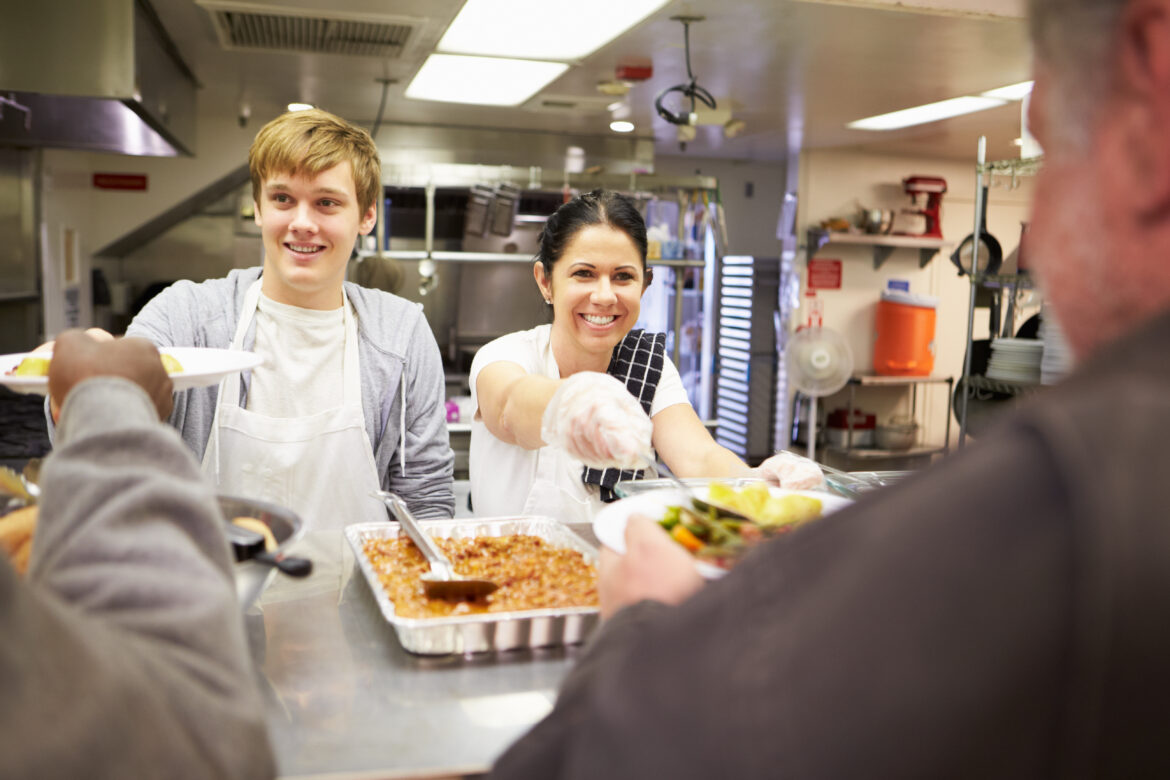Part of the Food Policy Snapshot Series
Food Policy: Food Recovery in France
Overview: Food bank volunteers visit supermarkets to collect perishable foods in good quality that have not been sold. The food is then transported via refrigerated trucks to storage warehouses where it is documented and packaged for redistribution. Food is then distributed to farmers’ markets and social grocery stores where low-income individuals can purchase quality food for a reduced price. Food is also donated to soup kitchens to provide nutritionally adequate meals for the homeless and those in need.
Location: France; Program first began in Joinville, France
- France Population: 66 million
- Joinville population: 5,545 (https://www.citypopulation.de/php/france-agglo.php?cid=52201)
Progress to date:
- Banques Alimentaires reports that ~ 63,000 tons of food from industry-agribusiness, farmers and supermarkets, are saved each year by Food Bank recovery volunteers in France
- Currently markets in Joinville receive donations ranging from 500 to 1,200 kg of fruit and vegetables each Sunday
Food policy category: Food Waste, Food Insecurity
Program Initiated:
- The program derives from a long history of gleaning networks in Joinville, France.
- Petitions calling for Food Waste action from grassroots organizations gained the attention of French Officials in 2012.
- The French national pact against food waste launched in December 2012 and was signed in June 2013
- The official law banning food waste was passed in French Senate in February of 2016
- Added penalty fine: supermarkets with a floor space of more than 400 sq m can face fines of up to €3,750 (£2,900) if they are caught throwing away or destroying unsold food fit for consumption
Program goals:
- To reduce food waste in France by 50 percent by 2025.
- To rescue unsold quality produce and transport it to food banks and soup kitchens, where it is distributed and feed to those in need
How it works:
- Volunteers from food banks arrive at supermarkets to collect unsold quality foods (currently ~5,200 volunteers are trained to handle food)
- Inspected food is loaded into refrigerated trucks and isothermal containers and brought back to warehouses for sorting
- Products weighed, sorted, and stored in temperature controlled room. All food products are scanned and distributed based on expressed need of various food banks.
- Food packaged up and distributed to a network of 5,300 associations and social organizations (~1870 shops visited daily by volunteers)
- Social grocery stores: Offer selection of food for sale at less than 10 percent of original cost – implemented to give low income families more freedoms in food choices and maintenance of personal autonomy.
Why it is important:
- This initiative raises awareness about food waste and provides an effective method to prevent food waste.
- Before this food recovery measure was implemented France was disposing of roughly 7.1 million tones annually while a significant portion of the population faced food insecurity.
- This program can bridge social inequities by increasing food access to marginalized populations without stigmatization.
- By improving access to healthy and nutritious foods to populations that are often priced out of quality food, France has the ability to dissolve many food access issues. Furthermore, by providing the food at farmers’ markets and social grocery stores, they can provide reduced cost food without stigmatizing populations for receiving the food.
Evaluation:
Banques Alimentaires reports that ~ 63,000 tons of food from industry- agribusiness, farmers and supermarkets, are saved each year by the Food Banks
Learn more:
- https://www.eurofoodbank.eu/
- https://www.banquealimentaire.org/
- https://www.arashderambarsh.com/
- The Guardian’s coverage of the law:https://www.theguardian.com/world/2016/feb/04/french- law-forbids-food-waste-by-supermarkets
Similar practices:
- “Let’s Glean” USDA initiative – EU
- The Gleaning Network coordinates volunteers, farmers and food redistribution charities to save thousands of tonnes of fresh fruit and vegetables that are wasted on farms every year across the UK and Europe, and direct this fresh, nutritious food to people in need.
- Gleaning Network already gleaned over 188 tonnes of produce, equal to well over 2 million portions of fruit and veg, with over 1000 volunteers across 99 gleaning days
- “City Harvest” – NYC
- City Harvest collects excess food from restaurants, grocers, bakeries, manufacturers, and farms, and delivers it free of charge to 500 community food programs across NYC.
- City Harvest also partners with residents, local organizations and businesses through their Healthy Neighborhoods programs which increases the availability of affordable fruits and vegetables in low-income communities and provides the nutrition education and resources to maintain a wholesome, food-secure diet.
- Food Waste/Redistribution supporters now hope to persuade the EU to adopt similar legislation across member states
References:
- Forster, T., Egal, F., Renting, H., Dubbeling, M., & Escudero, A. “Milan Urban Food Policy Pact. Selected Good Practices from Cities.” Fondazione Giangiacomo Feltrinelli, Milano: Italy.
- Food Waste Report (english version): https://www.nrdc.org/sites/default/files/france-food- waste-policy-report.pdf
- “Banques Alimentaires | Ensemble, Aidons L’homme à Se Restaurer.” Banques Alimentaires | Ensemble, Aidons L’homme à Se Restaurer. Web. 31 Mar. 2016. <https://www.banquealimentaire.org/>.
- Chrisafis, Angelique. “France to Force Big Supermarkets to Give Unsold Food to Charities.” The Guardian. Guardian News and Media, 22 May 2015. Web. 31 Mar. 2016. <https://www.theguardian.com/world/2015/may/22/france-to-force-big-supermarkets-to-give-away-unsold-food-to-charity>.
- “Comparative Study on EU Member States’ Legislation and Practices on Food Donation: France.” Bio by Deloitte (2014). European Economic and Social Committee. Web. 31 Mar. 2016. <https://www.eesc.europa.eu/resources/docs/comparative-study-on- eu-member-states-legislation-and-practices-on-food-donation_finalreport_010714.pdf>.
- Delman, Edward. “Should It Be Illegal for Supermarkets to Waste Food?” The Atlantic. 29 May 2015. Web. 31 Mar. 2016. <https://www.theatlantic.com/international/archive/2015/05/law-france-supermarkets-food-waste/394481/>.
- City Harvest Site: https://www.cityharvest.org/about
- Gleaning Network Site: https://feedbackglobal.org/campaigns/gleaning-network/


